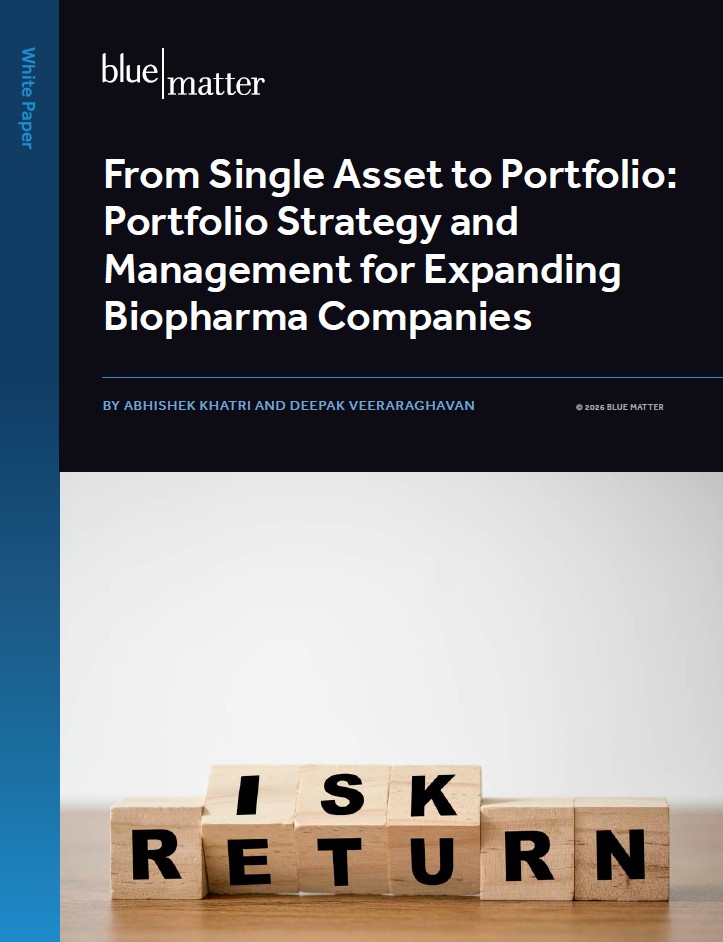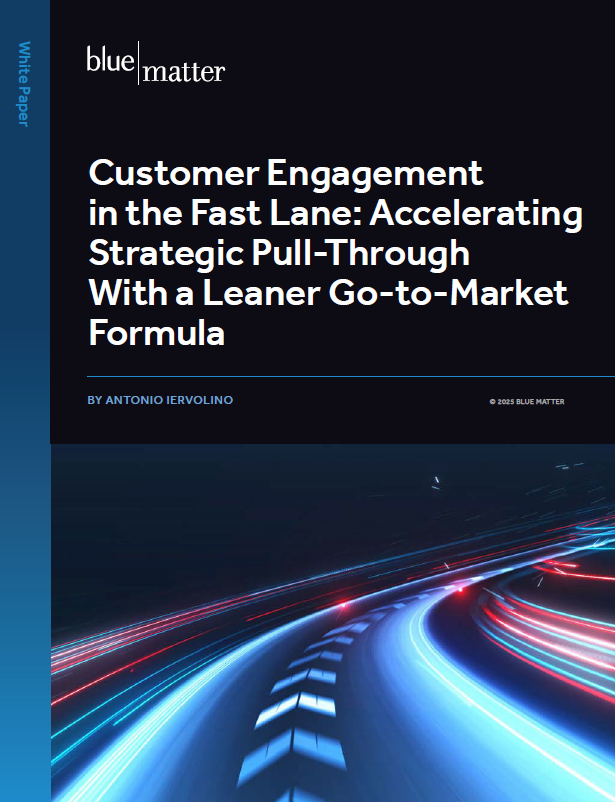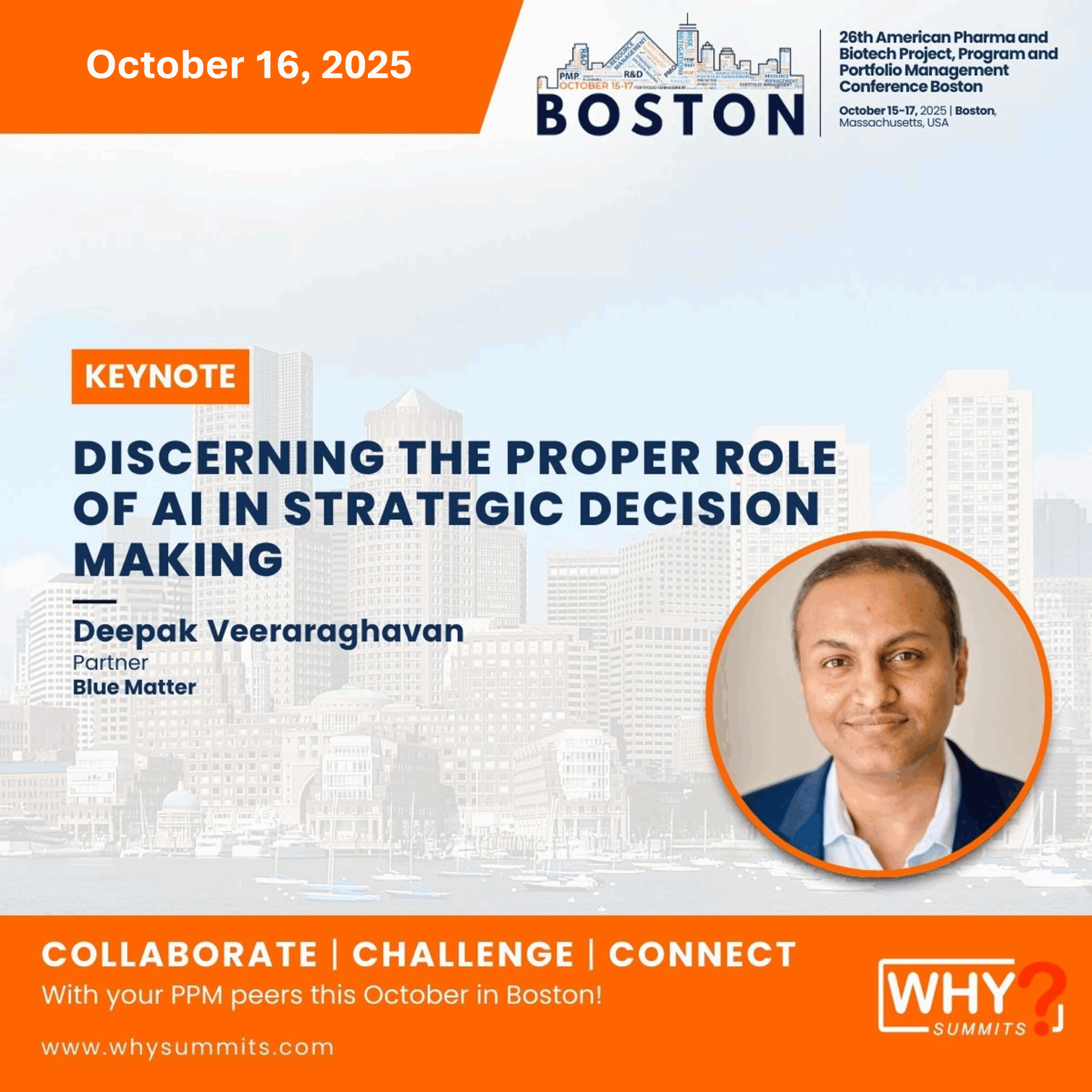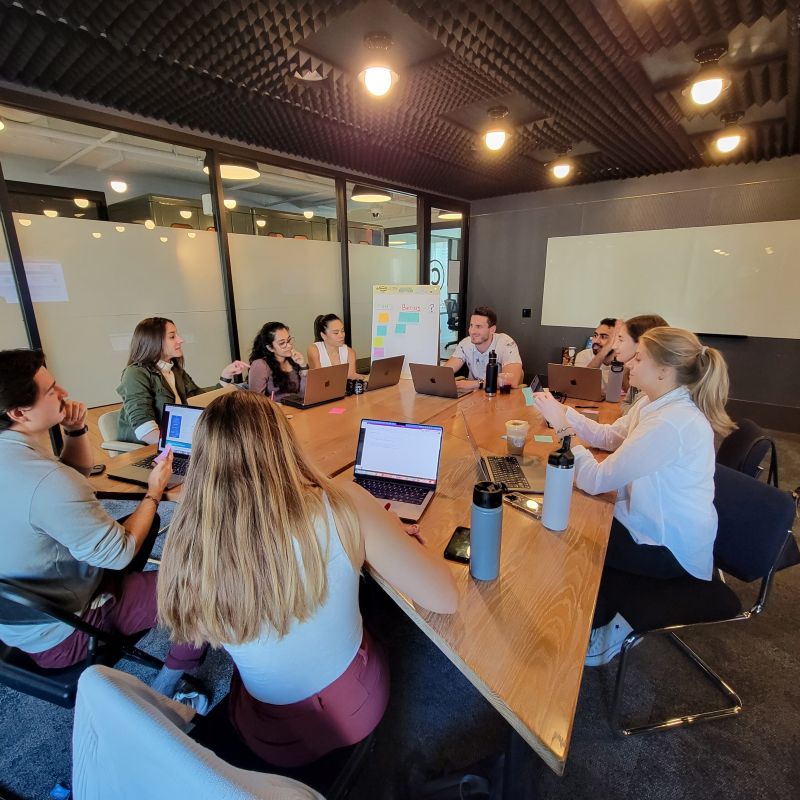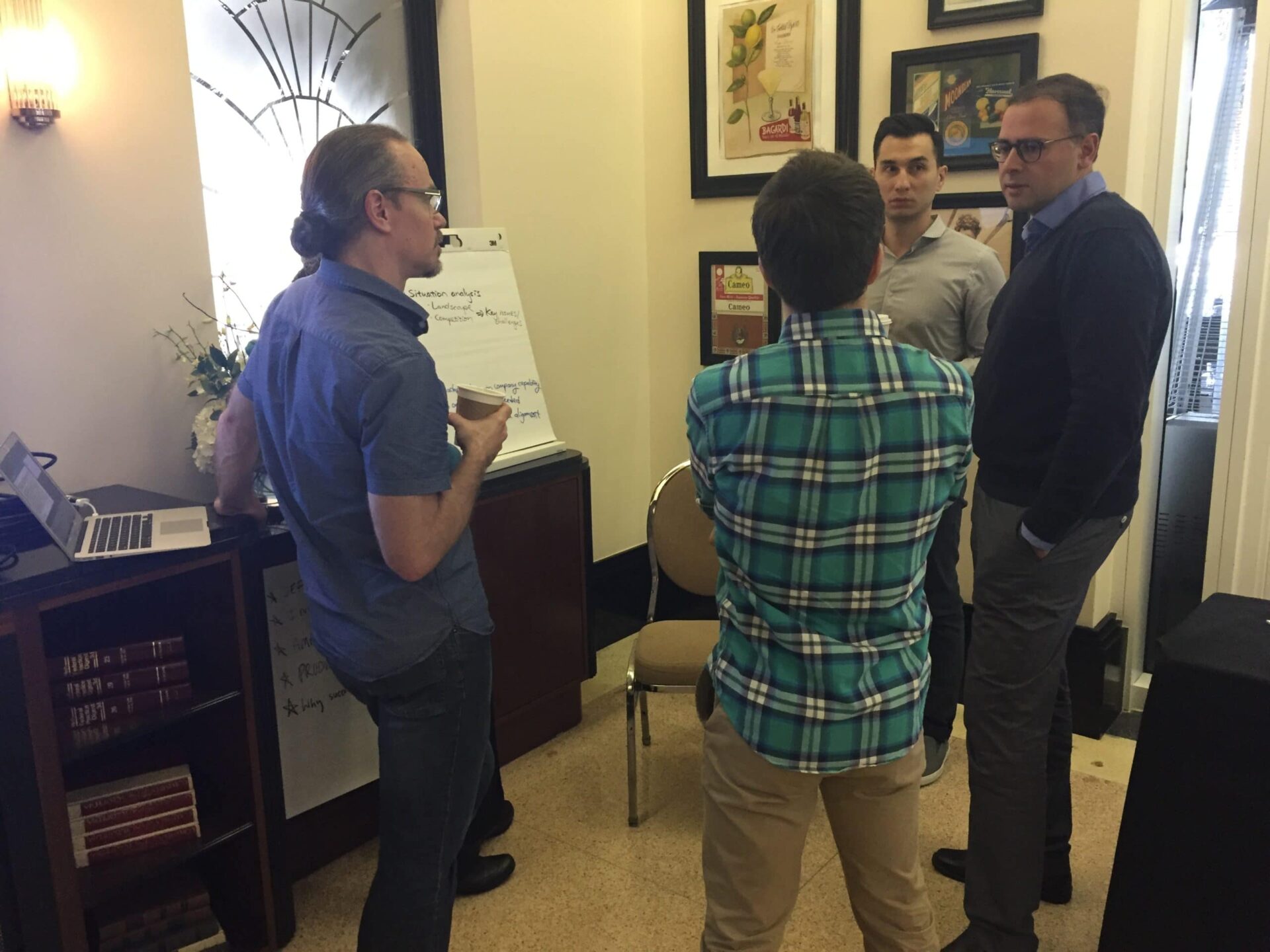
Blue Matter Academy (BMA) is Blue Matter Consulting’s in-house learning and development organization. Officially launched in 2017, BMA’s goal is to provide ongoing learning opportunities for all Blue Matter team members. Recently, Karen Foster, Learning Strategist and Head of Blue Matter Academy, took the time to answer some common questions about the Academy and Blue Matter’s commitment to professional development for its team members.
- What was the rationale for launching Blue Matter Academy?
The founders of Blue Matter—Ashwin and Emily—prioritized learning and development from day one. When done well, it addresses several key needs: individuals’ drive for skill mastery, individual and organizational efficiency, and collaborative, supportive teams. A commitment to career development results in successful team members and a successful firm.
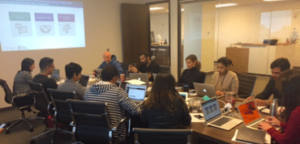 As early as 2013, Blue Matter consulting teams were creating learning materials and sharing best practices. When George Schmidt joined in 2015, he brought expertise in learning and development and spearheaded creation of the firm’s competency model. The Make an Impact model outlines the specific competencies necessary for consulting team members to be well-rounded and highly effective.
As early as 2013, Blue Matter consulting teams were creating learning materials and sharing best practices. When George Schmidt joined in 2015, he brought expertise in learning and development and spearheaded creation of the firm’s competency model. The Make an Impact model outlines the specific competencies necessary for consulting team members to be well-rounded and highly effective.
By 2017, with the firm poised for US and global growth, I was brought on-board to formalize Blue Matter Academy. By then, the firm had done the foundational work of establishing a learning mindset and building a competency model. So, to a great extent, the work we’re doing now “stands on the shoulders of giants.”
Ultimately, the rationale for creating a dedicated department is to support all team members’ growth and professional development. It also demonstrates an ongoing commitment to the team’s well-being as the firm expands.
- What types of educational and professional development opportunities does BMA offer consulting team members?
When it comes to developing consulting team members, BMA bases its learning programs on the Make an Impact competency model. That model outlines competencies in two core areas:
- Client Impact: What we do and how we do it
- Blue Matter Impact: Building the team and the firm
Within each of those areas, there are sub-categories and many more sub-skills. Ultimately, the Academy aligns its offerings to the model’s 12 primary competencies. Its learning experiences, programs, and materials support that framework.
So, some programs focus on the “hard” skills related to consulting and project delivery, like problem solving, designing slides, facilitation, project management, and more. Other programs focus on the “softer” skills like leadership, communication, and collaboration. In addition, the Academy supports other internal team-directed regional Lunch and Learn (US) and Food for Thought (EU) programs. These focus on domain expertise, which can range from best practices for using technology to scientific updates in specific therapeutic areas.
- Most, but not all, of the team comes to Blue Matter with previous consulting experience. Will BMA focus on developing new-to-role consultants, or will it offer development opportunities for tenured consultants?
The Academy is here to support individuals no matter where they are on their career path. The core material, like the slide development curriculum, is designed to speak to those new to consulting, but can also strengthen tenured team members’ expertise.
For those that manage teams, a New and Advanced Manager Curriculum is currently in development. The goal of that program will be to empower new-to-role and tenured managers to effectively manage the process and the people elements of projects. Specifically, a series of experiential learning programs is being created to help hone communication and coaching skills to foster strong team dynamics.
When it comes to programs that focus on domain expertise, it’s important to remember that team members—even those new-to-role—have diverse backgrounds and expertise. Mining that expertise for learning that can be shared across the firm is a key initiative for the Academy. An example would involve capturing tenured team members’ expertise in rare diseases who’ve worked on a range of projects throughout their career, and then packaging it into learning experiences for the entire firm. It’s a great way to cross-pollinate knowledge throughout the company.
- Blue Matter runs an efficient operation, and has relatively few internal personnel. Consequently, the internal people that Blue Matter has on board are critical. Will BMA provide development opportunities for them, as well?
Absolutely. The “soft skills” programs currently available—and on the docket to be built—are just as relevant for internal team members as for consulting team members. Everyone can benefit from learning leadership skills, non-verbal communication skills, how to engage with people, and so on.
- What is your philosophy of adult learning, and how is it being applied at BMA?
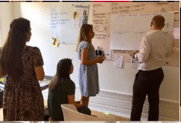 I’m a huge proponent of self-directed learning. The model of sitting people down and bombarding them with content in a one-way flow of information is inefficient in this age. It also runs contrary to the evidence that science has uncovered regarding optimal learning environments. Instead, the Academy is about setting up experiences that facilitate learning. Getting people engaged in dialogue and participating in interactive experiences, that’s where real learning takes place. We strive for this in our quarterly or trimester regional meeting live workshops, as well as our remote offerings provided throughout the year.
I’m a huge proponent of self-directed learning. The model of sitting people down and bombarding them with content in a one-way flow of information is inefficient in this age. It also runs contrary to the evidence that science has uncovered regarding optimal learning environments. Instead, the Academy is about setting up experiences that facilitate learning. Getting people engaged in dialogue and participating in interactive experiences, that’s where real learning takes place. We strive for this in our quarterly or trimester regional meeting live workshops, as well as our remote offerings provided throughout the year.
Adult learning principles also dictate that a significant amount of the content is already in the heads of our team members, it’s just not evenly distributed. One may be an expert in a certain area, while another may be an expert in a different area. So, establishing forums in which subject matter experts can become facilitators and share that knowledge is key. For example, there are quarterly “Ask the Faculty” forums via WebEx. In these forums, various SMEs dive deeper into skills and content recently presented at a live workshop, and give attendees the opportunity to ask questions to learn more about it. It’s one example of how we cross-pollinate knowledge and help keep the teams connected.
- What’s on tap next for BMA? What types of programs are in development now?
The two priorities in 2018 for BMA are maintaining a strong consulting skills core curriculum and designing a new and advanced manager curriculum. With respect to the manager curriculum, modules are currently in development. The formal program rollout is expected in time for new-to-role managers in late Q3.
- Ultimately, what is your vision for BMA?
Our vision is to have the best learning and development organization of any consulting firm our size, and we’re investing to build that. As mentioned, research shows that self-directed, experiential learning is the most effective way to drive knowledge and skill in today’s age of information. We want to drive as much of that as possible. To do that, we’re building an eco-system that encourages the team to engage with each other to facilitate learning. In that type of system, sometimes people get to play the role of subject matter expert, while at other times, they might be soaking up as much learning as possible.
Ultimately, Blue Matter Academy wants to provide comprehensive learning tools, guidance, and programs across our team members’ career paths. But most importantly, we want to entrench a culture of learning that captures the knowledge of all our team members and continually shares it across the firm. We teach each other.
